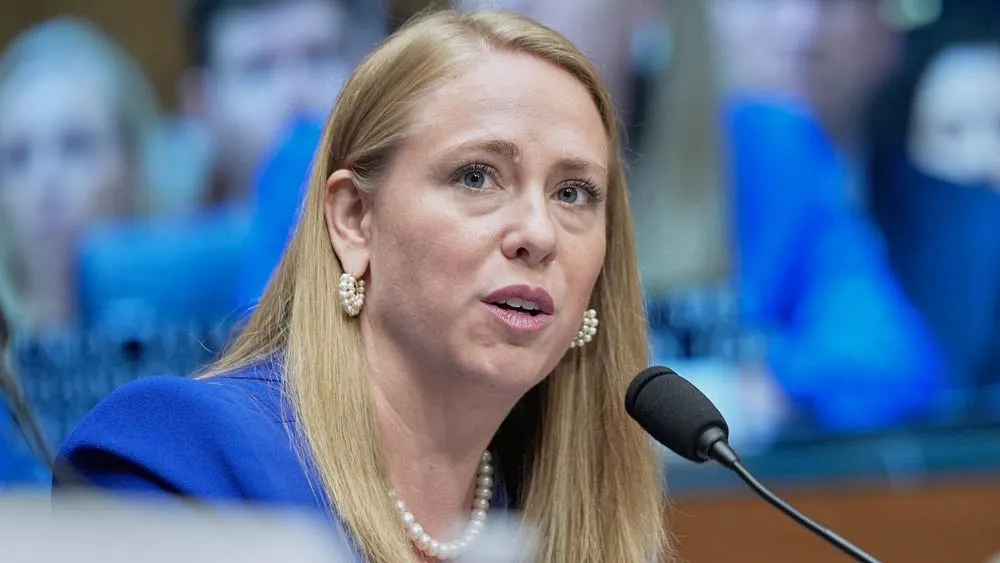June 8, 2021
Watch: New Clinic in Cleveland Offers Gender-Affirming Surgeries
Kilian Melloy READ TIME: 3 MIN.
In Cleveland, a newly-established clinic for LGBTQ patients offers gender affirmation care among its services, ABC affiliate News 5 Cleveland reports.
The news report tells the story of Toledo resident Robert Hillier, who, like many transgender individuals, says he "knew I wasn't in the right body" at a very early age.
"I had short hair. I wore boy clothes," Hillier told the news channel. When he was 14, he came out as a lesbian, but that still didn't address his authentic identity. But then "I learned about trans people, and trans men trans women, non-binary people... I was learning more about what made sense," Hillier said.
Hillier also told his story to local news station WKYC, making a pun as he gave his name.
"It's Bobby, with a Y for the chromosome that I've been missing," Hillier joked.
At 18, Hillier came out again - as transgender this time - and started a hormone regimen. But it wasn't until he was 20 or so, he told News 5, that he "finally found a team that took me seriously."
That team was much closer to home than Hillier expected. "I thought I'd have to travel across the country," Hillier told WKYC.
But all he needed to do was drive a couple of hours to Cleveland, where he "found that team at University Hospitals in its LGBTQ and Gender Care Clinic," the News 5 report said.
The director of the University Hospitals' Surgical Gender Affirmation Program, urologist Dr. Shubham Gupta, told News 5 that the program aims to close the discrepancies that all too often plague health care for LGTBQ Americans - none more so than the trans community.
"We are very aware that the care that we provide for the LGBTQ population has been sub-par with poor access and poor outcomes for a very long period of time," Gupta acknowledged.
But the clinic at University Hospitals has "the explicit aim of taking care of the physical, mental, emotional needs of all patients of all ages," Gupta noted.
With an estimated 40,000 transgender people living in Ohio, Dr. Gupta and his associate, Dr. Tobias Long, found their skills as phalloplasty specialists were in demand. Long told WKYC that the doctors are "doing surgeries on a weekly basis."
For Ohio patients, the clinic's location is a boon.
"It's much safer to be able to do something locally, especially something this technical, from a recovery aspect and being close to your surgeons if there are any issues," Long noted.
The topic of medical care for transgender Americans has recently become highly politicized, with several states passing bills that criminalize gender-affirming health care for transgender youth.
That torrent of anti-trans legislation has contributed significantly to this year's record number of homophobic and transphobic state laws, with 2021 already having shattered records when it comes to legislative attacks.
It's a trend that flies in the face of medical advice and science. A report published last month in the journal JAMA Surgery reaffirmed what previous research had already shown, finding that "gender-affirming surgery was associated with a 42 percent reduction in psychological distress, a 44 percent reduction in suicidal thoughts and a 35 percent reduction in tobacco smoking," according to NBC News.
Anthony Almazan, the lead researcher on the study and a fourth-year student at Harvard Medical School, told NBC News that the study "adds to a growing body of evidence showing affirmation in all forms can be life-saving for trans and gender-diverse people."
Almazan added: "Policies that limit access to care can put lives at risk. Our evidence shows we should be expanding gender-affirming care, not limiting it."
An earlier study from January 2020 showed that the use of puberty blockers – a well-understood, easily reversible, and safe treatment – for trans adolescents had a dramatic health-enhancing effect well into adulthood; the study "found that 90 percent of trans adults who wanted, but could not access, puberty blockers experienced suicidal thoughts," NBC News reported at the time.
Watch the News 5 report below:
Kilian Melloy serves as EDGE Media Network's Associate Arts Editor and Staff Contributor. His professional memberships include the National Lesbian & Gay Journalists Association, the Boston Online Film Critics Association, The Gay and Lesbian Entertainment Critics Association, and the Boston Theater Critics Association's Elliot Norton Awards Committee.


